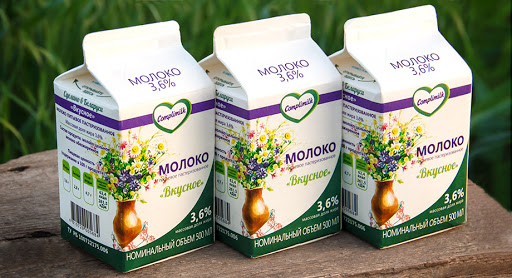Experts called the conditions for Eurasian integration against the backdrop of sanctions
The partnership of Russia and other countries of the Eurasian Economic Union (EAEU) with the states of "Greater Eurasia", including CHINA , India, Iran, Turkey, can increase their combined share in world GDP to 46% by 2035 from 38% in 2019. In the long term, these countries can become "a driver of the world economy and an example of balanced development," according to a report by the VEB.RF Institute for Research and Expertise on Eurasian integration (read by RBC). Now more than 50% of global GDP is produced by Western countries.
The authors acknowledge the dilemma: Russia's partners, except for Belarus, which is also under severe Western sanctions, are faced with a choice - to strengthen cooperation and mutual trade, taking into account the opportunities that import substitution processes in Russia open up, to strengthen financial sovereignty, or to weaken ties (including for the risks of secondary sanctions) and refocus on other, non-sanctioned markets.
“The EAEU countries have the resources and opportunities “not in numbers, but in skill” to continue to develop and form a new type of economy and partnership,” experts at the VEB Institute believe. This requires deep integration — at the socio-economic, humanitarian, and financial levels.
Impact of sanctions on the EAEU and the world
The sanctions shock affects the economies of Russia and Belarus the most (they account for almost 90% of the total GDP of the EAEU), but it also negatively affects other countries of the Eurasian Union and the CIS. The consensus forecast given by the authors shows that by the end of 2022, the EAEU economy as a whole will shrink by 8.6%, the CIS — by 9.7%, Belarus — by 6.4%, Russia — by 10% (the Ministry of Economic Development predicts minus 7, 8%). The economy of Ukraine against the backdrop of Russian hostilities may fall by 35-45%, follows from the consensus forecast.
At the same time, economists at the VEB.RF Institute see risks of global stagflation (recession plus inflation). The scenario of the global crisis assumes a sharp reduction in the EXPORT of Russian energy resources, a further rise in oil and gas prices. Increased geopolitical risks will reduce private sector confidence and increase risk premiums in financial markets. “These factors will lead to a further reduction in consumer spending and investment demand from businesses. Under these conditions, the slowdown in supply growth will lead to an even greater rise in prices,” the report says. According to UN economists, global inflation will rise to 6.7% in 2022 - more than twice as high as the average in 2010-2020.
A slowdown in global economic growth should subsequently cool markets and lead to lower commodity prices in 2023–2024, which could negatively affect commodity exports and the balance of payments of the EAEU countries, VEB experts fear. “This will further exacerbate the internal structural problems that have been accumulating in recent years and the lag of the EAEU, and above all Russia, from the growth rates of the world economy,” they note.
Read on RBC Pro Pro Euphoria from biotechs disappears on the stock market.What lies ahead for the industry Articles Pro Meditation changes the brain.Is it Research Pro Boss Bloodsucker:What Annoys Russians Most About Their LeadersPro Tomorrow Might Not Work: 3 Steps to Meaningful Import Substitutionhow $11 billion fintech is collapsing Articles Pro How to stop being afraid and love inflation Articles ProCoffee: answers to common questions about your favorite drinkanswering common questions about your favorite drinkanswering common questions about your favorite drinkHowever, according to the VEB.RF Institute, there is another way - the formation of a common market for goods, services, labor and transport communications, a single financial space, and cultural ties. Deeper integration will increase the stability of national economies and give a positive impetus to economic growth, they believe.
VEB experts suggested attracting migrants with financial bonuses Economics
Conditions for integration
Building “deep integration” requires extensive work on several fronts. VEB experts see the following elements:
building a single payment space in Eurasia (connecting Russian banks to the Chinese UnionPay system, creating an international payment system within the CIS, developing settlements and lending in the common market in national currencies, etc.); increasing the volume of mutual trade by removing fiscal, administrative and technical barriers (in particular, “rolling out” the Iran- Russia ferry route, connection to the EAEU transport corridors of the cargo base of India, Indonesia, Vietnam, development of electronic trade document management, etc.); integration in the agricultural sector, including the expansion of the geography of agricultural production in the warm climatic conditions of Central Asia, the improvement of breeding technologies, the supply of machinery and equipment for the food industry to the EAEU countries.Experts suggested that Russia create a new payment unit Economics
Integration in the post-Soviet space has its own specifics, the authors of the Finnish Institute of International Affairs (FIIA) report “What Remains of the USSR” noted in 2019. In their opinion, the political elites of the former Soviet republics are closely connected with local businesses and have a high proportion of corruption. Foreign companies come to the region in order to gain access to resources and satisfy local demand, but do not seek to invest in the creation of high value-added industries. FIIA experts see the reasons for this in the gradual decrease in the weight of the region in the global economy, low competitiveness and expectations that the extensive growth in hydrocarbon production will reach its limit in the next decade.
In turn, VEB specialists believe that the response to global geopolitical risks can be not only integration into the EAEU and EAEU + (this includes Uzbekistan and Tajikistan), but also partnership with other regional associations (SCO, BRICS, ASEAN) with the formation of both common markets for goods and services, and a common institutional space.
Dietary supplements and vitamins in EAPTEKE. Fast shipping. Medicines at competitive prices. Discounts and promotions. Vitamins for all occasions. Order on the site!


























































